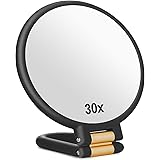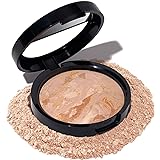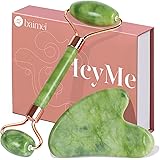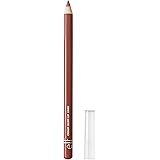Skip to main content in article(see)
Although Chinese agricultural products still flood the domestic market, representatives of the Ministry of Agriculture and Rural Development reassured consumers to rest assured about imported goods from neighboring countries.
Recently, the Management Board of Da Lat Agricultural Market confirmed that since the beginning of July 2014, there have been 3 batches of Chinese potatoes with over 50 tons imported to the market. These potatoes are “transformed” into Da Lat potatoes and sold at many times more expensive.
No alarm (!)
On July 28, responding to a reporter from Nguoi Lao Dong Newspaper about many Chinese agricultural products imported into Vietnam and the discovery of many shipments of pesticide residue reaching worrying and alarming levels, Mr. Nguyen Xuan Hong – Director of the Plant Protection Department, Ministry of Agriculture and Rural Development (MARD) – said that currently, agricultural products of plant origin in general and fruits in particular are imported into Vietnam. Men must carry out physical safety inspection procedures Products (food safety) and issued with a food safety inspection certificate can be cleared and put into circulation on the market.
According to Mr. Hong, the authorities have proactively and regularly inspected this item. Not only monitoring at the border gate, during the process of circulation in the market, shipments of fruits and agricultural products continue to be inspected, and if there are violations, they will be handled. “Currently, fruits are imported into Vietnam mainly by official routes, so it is quite convenient for food safety inspection. The issue of food safety inspection of Vietnam’s imported fruits is always of concern and is being implemented effectively. Consumers can rest assured” – Mr. Hong affirmed.
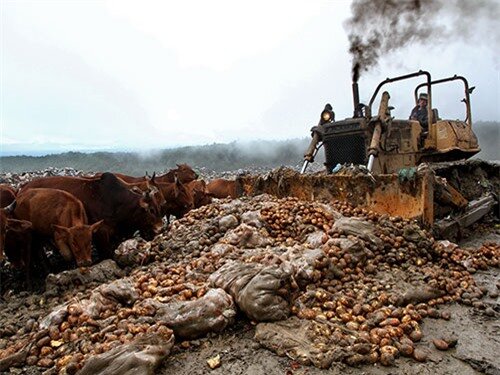
DilaBee Spray Bottles (4-Pack - 8 Oz) Water Spray Bottle for Hair, Plants, Cleaning Solutions, Cooking, BBQ, Squirt Bottle for Cats, Empty Spray Bottles - BPA-Free - Multicolor
$8.99 (as of December 22, 2024 00:30 GMT +00:00 - More infoProduct prices and availability are accurate as of the date/time indicated and are subject to change. Any price and availability information displayed on [relevant Amazon Site(s), as applicable] at the time of purchase will apply to the purchase of this product.)NuDerma Portable Handheld Skin Therapy Wand Machine w/Neon – Anti-Aging - Skin Tightening - Wrinkle Reducing - Dark Circles – Clarifying - Hair & Scalp Stimulator
$69.95 (as of December 22, 2024 00:30 GMT +00:00 - More infoProduct prices and availability are accurate as of the date/time indicated and are subject to change. Any price and availability information displayed on [relevant Amazon Site(s), as applicable] at the time of purchase will apply to the purchase of this product.)NuDerma Clinical Skin Therapy Wand - Portable Skin Therapy Machine w 6 Fusion Neon + Argon Wands – Anti Aging - Clarifying - Skin Tightening & Radiance - Wrinkle Reducing
$149.95 (as of December 22, 2024 00:30 GMT +00:00 - More infoProduct prices and availability are accurate as of the date/time indicated and are subject to change. Any price and availability information displayed on [relevant Amazon Site(s), as applicable] at the time of purchase will apply to the purchase of this product.)Sifolo 30x Magnifying Mirror, Travel Hand Mirrors with Handle - Double Side Handheld Mirror with 1X 30X Magnification & Adjustable Handle/Stand, Hand Held Foldable Travel Mirror for Makeup(Black)
$13.99 (as of December 22, 2024 00:30 GMT +00:00 - More infoProduct prices and availability are accurate as of the date/time indicated and are subject to change. Any price and availability information displayed on [relevant Amazon Site(s), as applicable] at the time of purchase will apply to the purchase of this product.)Heated Electric Thermal Steamer Cap for Natural Black Afro Hair - Hot Spa Treatment Hat with Temperature Control for Deep Conditioning at Home - Black
$18.98 (as of December 22, 2024 00:30 GMT +00:00 - More infoProduct prices and availability are accurate as of the date/time indicated and are subject to change. Any price and availability information displayed on [relevant Amazon Site(s), as applicable] at the time of purchase will apply to the purchase of this product.)Destroying Chinese potatoes with toxic residue exceeding the allowable level in Da Lat City, Lam Dong Province Photo: PHU DUNG
Regarding Circular 13 of the Ministry of Agriculture and Rural Development on food safety inspection of imported plant-based goods, in fact there have been some limitations, Mr. Nguyen Xuan Hong said that currently, the Department of Agricultural Quality Management Forestry and fisheries are coordinating with the Plant Protection Department to amend and supplement this circular.
“Currently, this draft document is being sent to collect comments from many sectors and industries at home and abroad” – Mr. Hong said.
Also according to Mr. Hong, in the near future, the department will overcome a number of inadequacies such as: Handling measures at the border gate when a shipment violates Vietnam’s food safety regulations, and the authority to make a decision to temporarily stop importing goods. or certain types of food products for each violating importing enterprise or for the entire exporting country; When must a recall of violating batches of goods already placed on the market be conducted? Technical barriers to control and handle violating shipments will be reviewed more closely and in harmony with the regulations of countries importing Vietnamese agricultural products, and must be consistent with international practices. .
It is not easy to deal with disguised goods
Mr. Nguyen Van Ky, General Secretary of the Vietnam Agricultural Products Association, said that to prevent the import of Chinese fruits from mixing with domestically produced goods, there needs to be coordinated management of many “gatekeeper” units. ”.
“Customs authorities are responsible for control right at the border gate, then quarantine authorities need to strictly control pesticide and plant protection drug residues before allowing the shipment to clear customs. When the goods arrive at the locality, it is necessary for the management of local Market Management Departments to continue detecting violations” – Mr. Ky stated.
Mr. Nguyen Dac Loc, Deputy Director of the Hanoi Market Management Department, also said that controlling imported Chinese agricultural products on the market is extremely difficult. “The Department regularly samples fruits and vegetables, but most of them still meet pesticide residue standards. But this is just a random sample and the market cannot control it all if the import focal points are border gates that do not do a good job of inspection and control before goods flood into the country” – Mr. Loc said.
According to Mr. Loc, we must be drastic in all stages such as: how to import, how to test quality, how to clear customs… Besides, the market management agency also believes that it is very difficult to punish acts of selling Chinese agricultural products in disguise at local markets because they were not labeled; It can only be handled when agents and supermarkets label domestic products but are actually imported from China.
Committing many violations According to the Department of Market Management – Ministry of Industry and Trade, the local Market Management Departments have developed plans and regularly organize inspections and handle violations. Inspection subjects include supermarkets, fruit and vegetable stores. . In the first 6 months of 2014, the country’s market management force inspected 90,826 cases and handled 48,691 violations; Total budget revenue is 202.76 billion VND; The value of confiscated goods is 67.24 billion VND, including handling violations of circulation and trading of imported fruits and vegetables. During the inspection, a number of violations were discovered such as: listing prices and selling at listed prices, fruits and vegetables being displayed for sale past the prescribed expiration date, goods showing signs of poor appearance and quality due to transportation. , not well preserved… |
According to NLD










